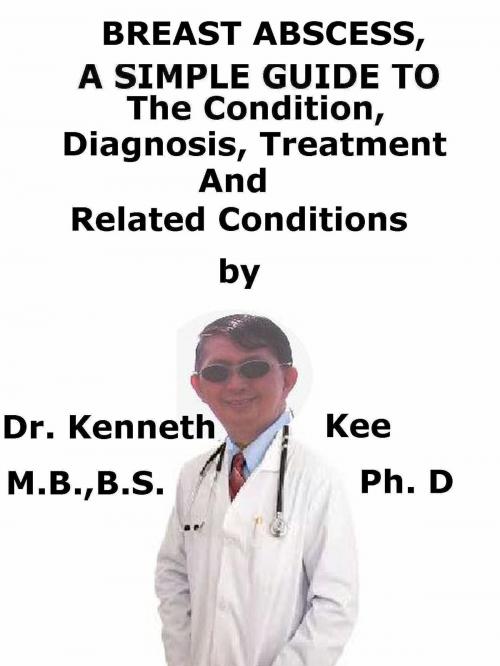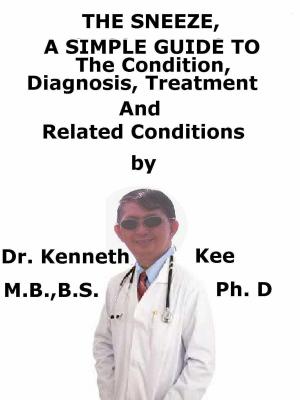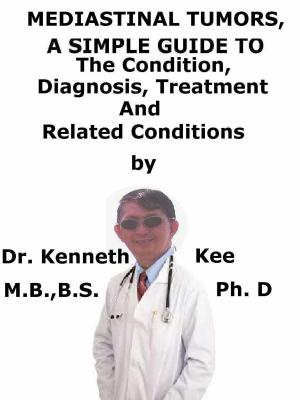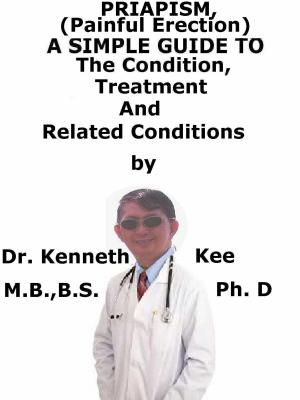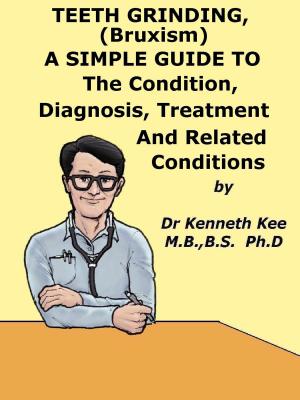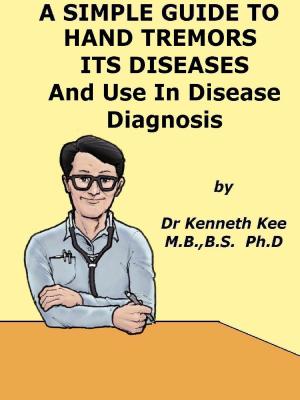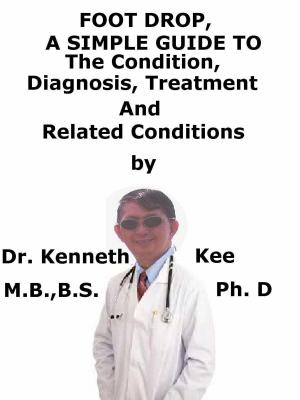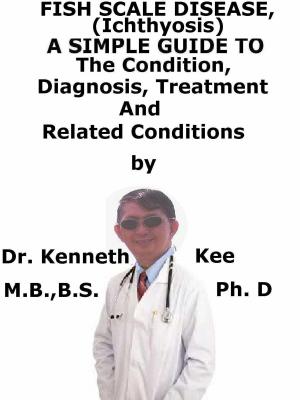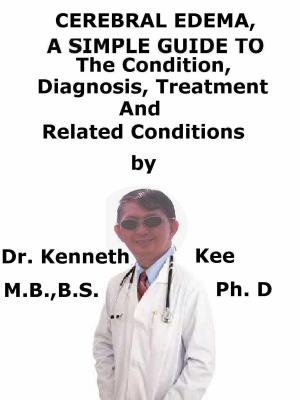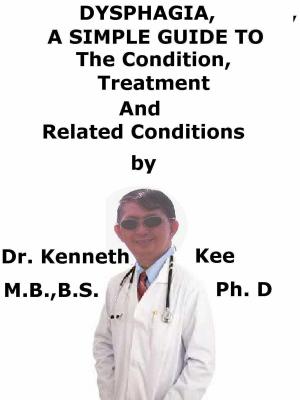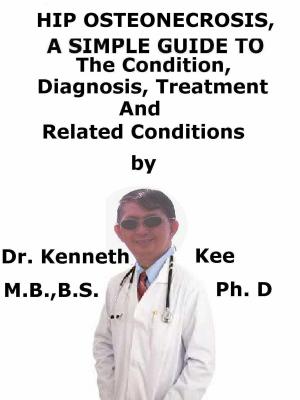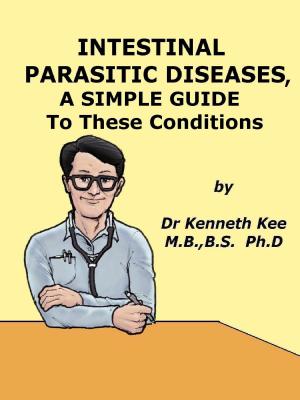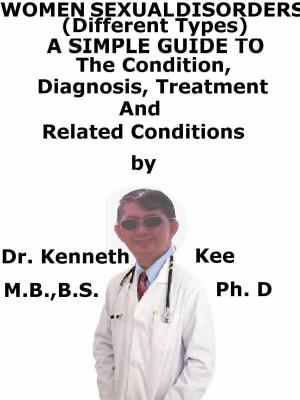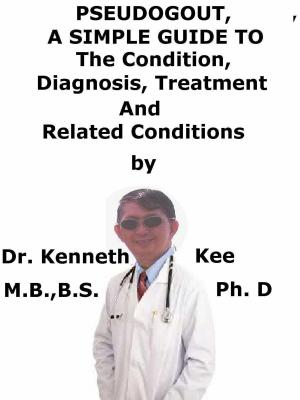Breast Abscess, A Simple Guide To The Condition, Diagnosis, Treatment And Related Conditions
Nonfiction, Health & Well Being, Medical, Ailments & Diseases, Infectious Diseases, General| Author: | Kenneth Kee | ISBN: | 9781370073153 |
| Publisher: | Kenneth Kee | Publication: | March 26, 2018 |
| Imprint: | Smashwords Edition | Language: | English |
| Author: | Kenneth Kee |
| ISBN: | 9781370073153 |
| Publisher: | Kenneth Kee |
| Publication: | March 26, 2018 |
| Imprint: | Smashwords Edition |
| Language: | English |
This book describes Breast Abscess, Diagnosis and Treatment and Related Diseases
A few years ago I had a menopausal Malay woman who has a breast swelling about the size of a grape on the left breast near the nipple.
Her husband had passed away and she had 3 grown up children.
She had seen the Government Doctor who advised her to have the lump removed and biopsied.
Being a Muslim she is reluctant to have it removed.
She consulted me for the treatment of the breast swelling which has been there for 1 week.
I palpated the breast swelling.
It was hard but has some warmth suggesting a possible infection.
There was mild pain.
I also advised her to have the breast swelling removed for biopsy because it was deep and a bit hard.
She also refused my referral to go for an ultrasound of the breast.
I was worried about a possible cancer.
She refused any operation and asked for treatment medically.
She would rather die than to go for an operation.
I decided to treat it as an infection
I gave her 2 antibiotics (ciprofloracin and metronidazole) and a non-steroidal anti-inflammatory drug (NSAID) to reduce swelling and inflammation and an antibiotic ointment to apply on the nipple and the lump.
Within 3 days the swelling started to subside and disappeared after 1 week.
It never recurs again.
A breast abscess is a collection of pus due to an infection in the tissue of the breast.
Breast examination reveals unilateral edema, erythema in a wedge-shaped area, and tenderness.
The affected area feels firm and hot
Causes
Breast infections are normally caused by common bacteria (Staphylococcus aureus) found on normal skin.
The bacteria enter through a break or crack in the skin, normally on the nipple.
The infection happens in the breast ducts and fatty tissue of the breast and causes swelling.
This swelling presses on the milk ducts.
The result is some pain and a lump in the infected breast.
Breast infections normally occur in women who are breastfeeding.
The normal infecting organism is Staphylococcus aureus while it may also be Staphylococcus albus and streptococci
Symptoms
Breast Abscess normally presents as a swelling ≥1 week after infection normally in only one breast.
Symptoms of a breast abscess may be:
1.Breast enlargement on one side only
2.Breast lump
3.Breast pain
4.Fever and flu-like symptoms, such as nausea and vomiting
5.Itching
6.Nipple discharge (may contain pus)
7.Swelling, tenderness, redness, and warmth in breast tissue
8.Tender or enlarged lymph nodes in armpit on the same side
9.Skin infection
Diagnosis:
For infections that continue to recur, milk from the nipple may be cultured.
In women who are not breastfeeding, tests done may be done to exclude cancer:
1.Breast biopsy
2.Breast MRI
3.Breast ultrasound
Treatment
Self-treatment may be applying moist heat to the infected breast tissue for 15 to 20 minutes four times a day.
The patient may also need to take pain relievers.
Antibiotics are very efficient in treating a breast abscess or infection.
If the patient takes antibiotics, the patient must continue to breastfeed or pump to alleviate breast swelling from milk production.
Also if the abscess does not go away, needle aspiration under ultrasound guidance is done, along with antibiotics.
If this method does not respond, then incision and drainage is the treatment of choice.
Antibiotics, normally flucloxacillin or erythromycin, should be given.
Treatment should be based on bacterial cultures and antibiotic resistance.
Parenteral antibiotics should be given at the same time, with added coverage for anaerobic bacteria.
Painkiller or NSAID is given for pain and inflammation.
TABLE OF CONTENT
Introduction
Chapter 1 Breast Abscess
Chapter 2 Causes
Chapter 3 Symptoms
Chapter 4 Diagnosis
Chapter 5 Treatment
Chapter 6 Prognosis
Chapter 7 Fibrocystic Breast Disease
Chapter 8 Breast Cancer
Epilogue
This book describes Breast Abscess, Diagnosis and Treatment and Related Diseases
A few years ago I had a menopausal Malay woman who has a breast swelling about the size of a grape on the left breast near the nipple.
Her husband had passed away and she had 3 grown up children.
She had seen the Government Doctor who advised her to have the lump removed and biopsied.
Being a Muslim she is reluctant to have it removed.
She consulted me for the treatment of the breast swelling which has been there for 1 week.
I palpated the breast swelling.
It was hard but has some warmth suggesting a possible infection.
There was mild pain.
I also advised her to have the breast swelling removed for biopsy because it was deep and a bit hard.
She also refused my referral to go for an ultrasound of the breast.
I was worried about a possible cancer.
She refused any operation and asked for treatment medically.
She would rather die than to go for an operation.
I decided to treat it as an infection
I gave her 2 antibiotics (ciprofloracin and metronidazole) and a non-steroidal anti-inflammatory drug (NSAID) to reduce swelling and inflammation and an antibiotic ointment to apply on the nipple and the lump.
Within 3 days the swelling started to subside and disappeared after 1 week.
It never recurs again.
A breast abscess is a collection of pus due to an infection in the tissue of the breast.
Breast examination reveals unilateral edema, erythema in a wedge-shaped area, and tenderness.
The affected area feels firm and hot
Causes
Breast infections are normally caused by common bacteria (Staphylococcus aureus) found on normal skin.
The bacteria enter through a break or crack in the skin, normally on the nipple.
The infection happens in the breast ducts and fatty tissue of the breast and causes swelling.
This swelling presses on the milk ducts.
The result is some pain and a lump in the infected breast.
Breast infections normally occur in women who are breastfeeding.
The normal infecting organism is Staphylococcus aureus while it may also be Staphylococcus albus and streptococci
Symptoms
Breast Abscess normally presents as a swelling ≥1 week after infection normally in only one breast.
Symptoms of a breast abscess may be:
1.Breast enlargement on one side only
2.Breast lump
3.Breast pain
4.Fever and flu-like symptoms, such as nausea and vomiting
5.Itching
6.Nipple discharge (may contain pus)
7.Swelling, tenderness, redness, and warmth in breast tissue
8.Tender or enlarged lymph nodes in armpit on the same side
9.Skin infection
Diagnosis:
For infections that continue to recur, milk from the nipple may be cultured.
In women who are not breastfeeding, tests done may be done to exclude cancer:
1.Breast biopsy
2.Breast MRI
3.Breast ultrasound
Treatment
Self-treatment may be applying moist heat to the infected breast tissue for 15 to 20 minutes four times a day.
The patient may also need to take pain relievers.
Antibiotics are very efficient in treating a breast abscess or infection.
If the patient takes antibiotics, the patient must continue to breastfeed or pump to alleviate breast swelling from milk production.
Also if the abscess does not go away, needle aspiration under ultrasound guidance is done, along with antibiotics.
If this method does not respond, then incision and drainage is the treatment of choice.
Antibiotics, normally flucloxacillin or erythromycin, should be given.
Treatment should be based on bacterial cultures and antibiotic resistance.
Parenteral antibiotics should be given at the same time, with added coverage for anaerobic bacteria.
Painkiller or NSAID is given for pain and inflammation.
TABLE OF CONTENT
Introduction
Chapter 1 Breast Abscess
Chapter 2 Causes
Chapter 3 Symptoms
Chapter 4 Diagnosis
Chapter 5 Treatment
Chapter 6 Prognosis
Chapter 7 Fibrocystic Breast Disease
Chapter 8 Breast Cancer
Epilogue
